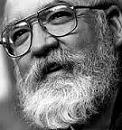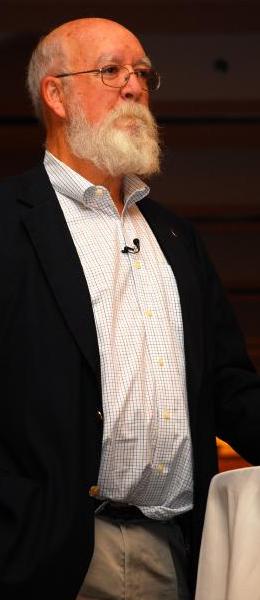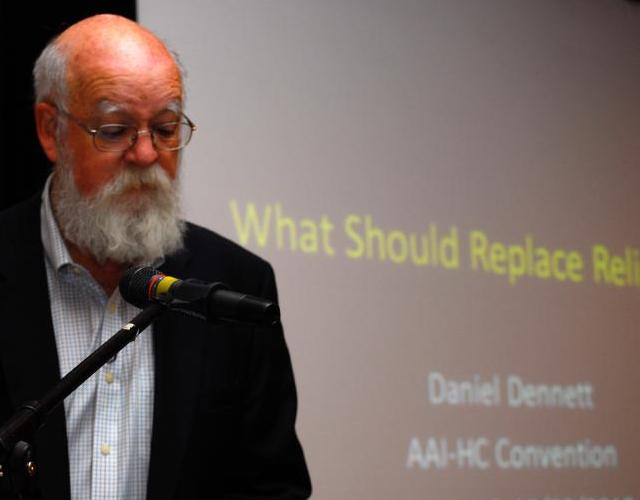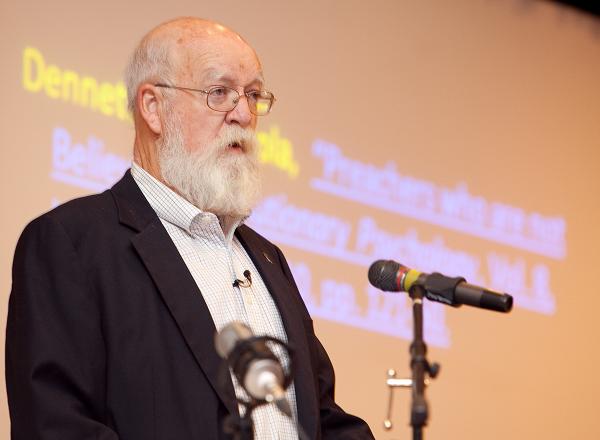
Daniel C. Dennett, the author of Breaking the Spell (Viking, 2006), Freedom Evolves (Viking Penguin, 2003) and Darwin's Dangerous Idea (Simon & Schuster, 1995), is University Professor and Austin B. Fletcher Professor of Philosophy, and Co-Director of the Center for Cognitive Studies at Tufts University. He lives with his wife in North Andover, Massachusetts, and has a daughter, a son, and three grandchildren. He was born in Boston in 1942, the son of a historian by the same name, and received his B.A. in philosophy from Harvard in 1963. He then went to Oxford to work with Gilbert Ryle, under whose supervision he completed the D.Phil. in philosophy in 1965. He taught at U.C. Irvine from 1965 to 1971, when he moved to Tufts, where he has taught ever since, aside from periods visiting at Harvard, Pittsburgh, Oxford, and the École Normale Supérieure in Paris.

At the podium, 2010-10-02
Photograph: J. Jarry
His first book, Content and Consciousness, appeared in 1969, followed by Brainstorms (1978), Elbow Room (1984), The Intentional Stance (1987), Consciousness Explained (1991), Darwin's Dangerous Idea (1995), Kinds of Minds (1996), and Brainchildren: A Collection of Essays 1984-1996 (MIT Press and Penguin, 1998). Sweet Dreams: Philosophical Obstacles to a Science of Consciousness, was published in 2005 by MIT Press. He co-edited The Mind's I with Douglas Hofstadter in 1981. He is the author of over three hundred scholarly articles on various aspects on the mind, published in journals ranging from Artificial Intelligence and Behavioral and Brain Sciences to Poetics Today and the Journal of Aesthetics and Art Criticism.
He gave the John Locke Lectures at Oxford in 1983, the Gavin David Young Lectures at Adelaide, Australia, in 1985, and the Tanner Lecture at Michigan in 1986, among many others. He has received two Guggenheim Fellowships, a Fulbright Fellowship, and a Fellowship at the Center for Advanced Studies in Behavioral Science. He was elected to the American Academy of Arts and Sciences in 1987.
Awards:
Read more: Daniel Dennett on Wikipedia

Daniel Dennett at the podium, 2010-10-02
Photograph: J. Jarry

Daniel Dennett at the podium, 2010-10-02
Photograph : F. Ward
Some of the functions served by religious institutions are undeniably valuable, and if religions were to fade away we would want new institutions to take on these roles. We know that as societies improve the welfare and security of their citizens, religiosity wanes, but are there steps we should take to create or transform institutions to provide alternative structures for meaningful lives for all?